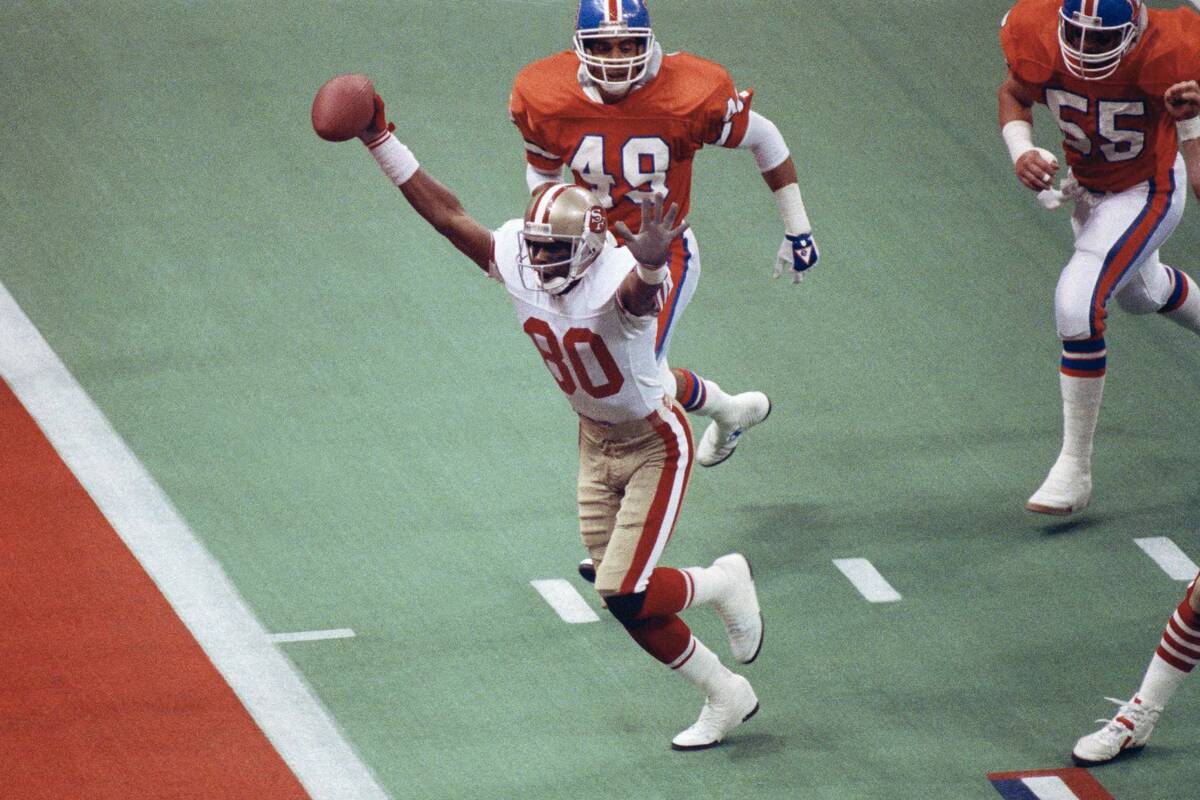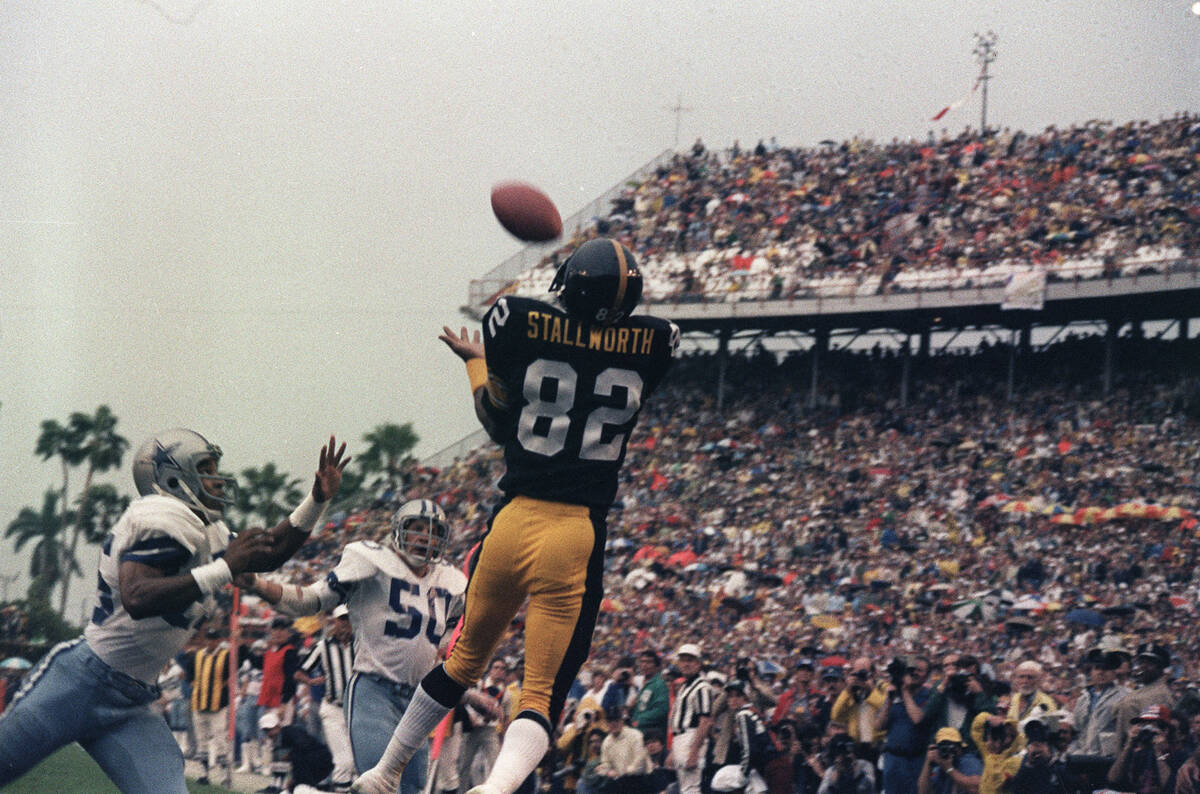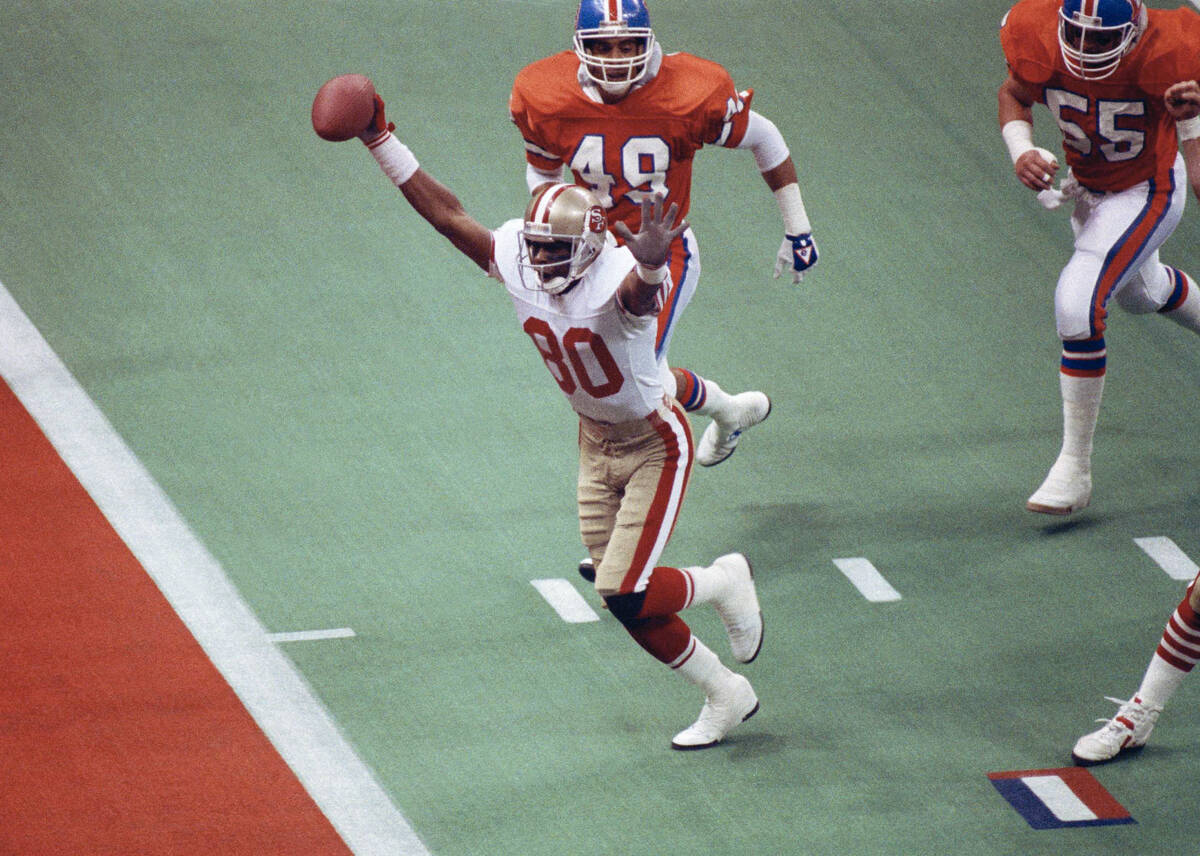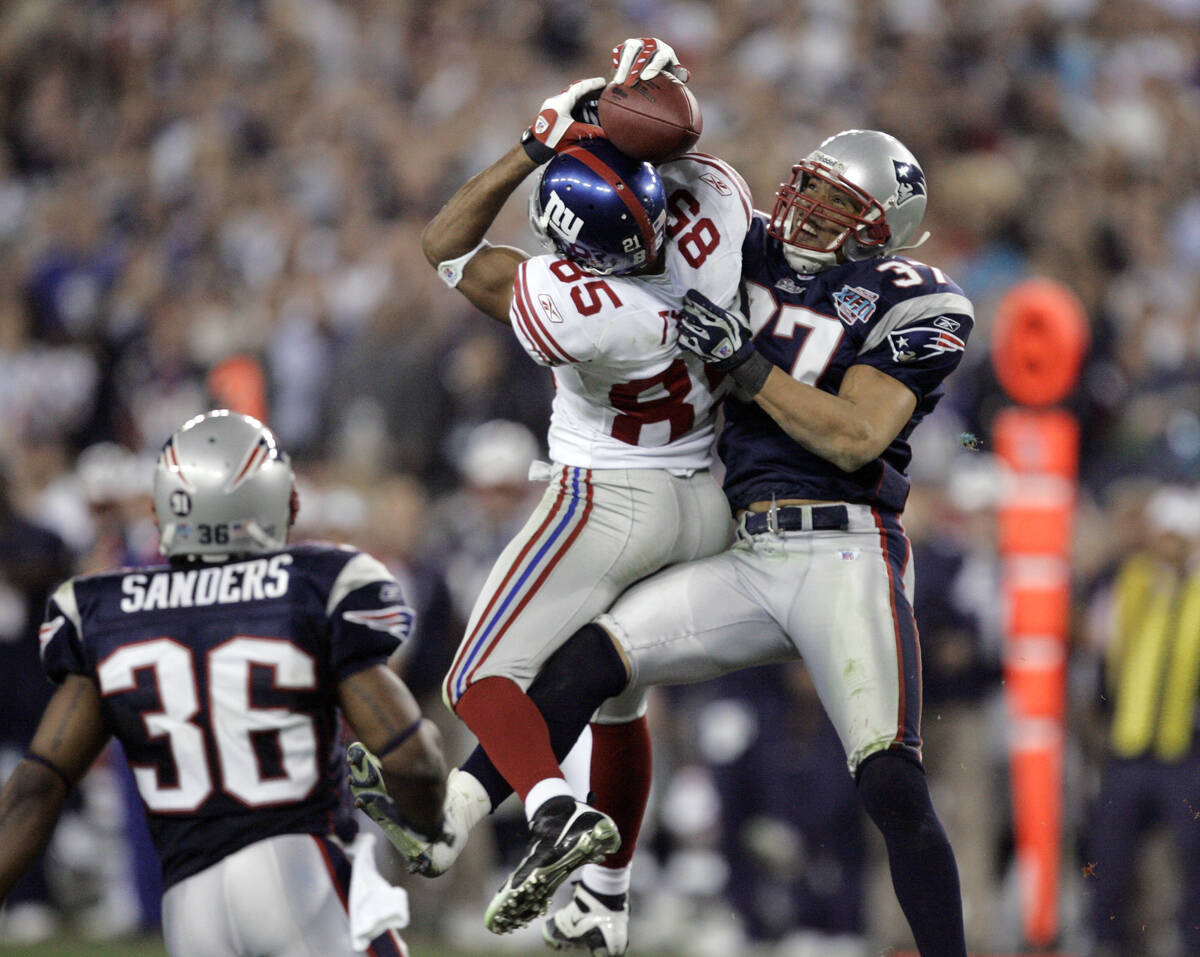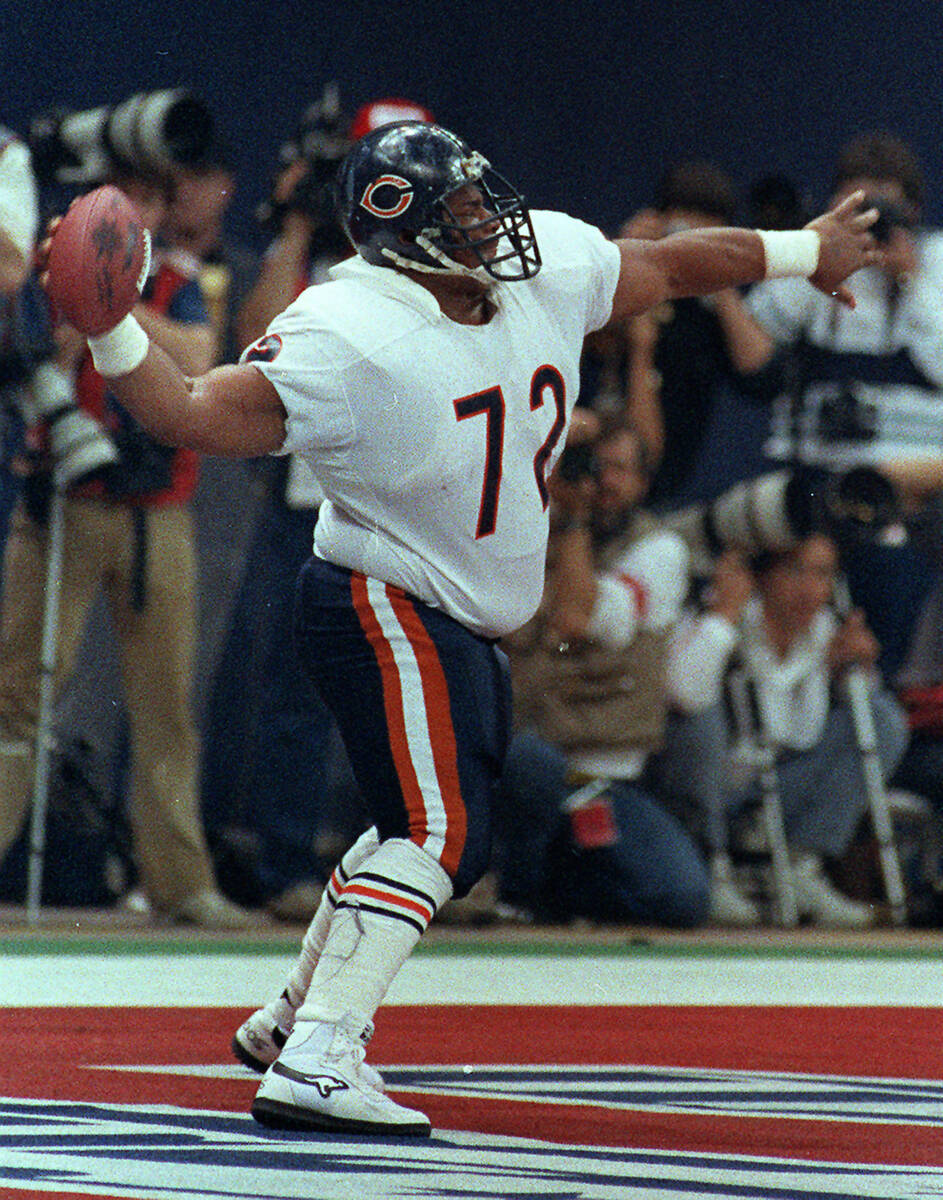‘It was a monster’: Biggest betting moments in Super Bowl history
Brent Musburger covered the first Super Bowl as a sports columnist for the now defunct Chicago American newspaper.
“One of my favorite anecdotes from that game is (NFL) commissioner Pete Rozelle, who I had known when he was a PR man, actually gave me tickets — which I still have,” said Musburger, 84. “I could not give them away. It was not a sellout crowd.”
In fact, that Packers-Chiefs AFL-NFL World Championship Game — as it was originally called — at the Los Angeles Coliseum on Jan. 15, 1967, is the only Super Bowl that did not sell out.
Super Bowl 1 also didn’t generate much buzz about betting. Green Bay beat Kansas City 35-10 and covered as a 14-point favorite. There is no record of the total on the game.
“It was not a huge betting event,” Musburger said. “There was very, very little chatter about the point spread. It was just not discussed.”
That changed dramatically in Super Bowl 3, when the Jets stunned the Colts 16-7 as 18-point underdogs after New York quarterback “Broadway” Joe Namath famously guaranteed victory in one of the greatest upsets in sports history.
“Gambling has always been a huge part of the NFL, including the founding, but it didn’t really become a huge public story until Super Bowl 3,” said Musburger, who hosted nine Super Bowls for CBS and ABC before moving to Las Vegas in 2017 to start VSiN, the first sports betting network. “Then it took off from there, and it hasn’t slowed down. The money today is staggering to me.”
More than 50 million Americans wagered $16 billion on last year’s Super Bowl — the single biggest sports betting event of the year — according to estimates by the American Gaming Association. The AGA will announce betting projections Tuesday for the first Super Bowl in Las Vegas between the Chiefs and San Francisco 49ers on Sunday at Allegiant Stadium.
Here is a glance at some of the biggest moments and innovations in the history of betting on the Super Bowl, which has generated $1.4 billion in wagers over the last 10 years at Nevada sportsbooks.
‘Black Sunday’
Two years after the movie “Black Sunday” hit theaters in 1977, another Super Bowl disaster played out in Las Vegas, where sportsbooks were buried by bettors who middled Super Bowl 13 between the Steelers and Cowboys.
Frank “Lefty” Rosenthal, who was the basis for Robert De Niro’s character in Martin Scorsese’s classic mob movie “Casino,” opened the first sportsbook in a Strip casino in 1976 at the Stardust.
In 1979, Rosenthal ran a Super Bowl promotion offering Stardust bettors the chance to lay 3½ points with Pittsburgh and take 4½ points with Dallas. The Steelers’ 35-31 victory — landing right in the middle on 4 — made winners of virtually everybody who bet on it.
Bookmakers lost an estimated $3 million — $13.5 million in today’s dollars — on the day they dubbed “Black Sunday.”
“Every wiseguy in the world had a winner on that game. Books got their ass kicked,” said venerable Las Vegas oddsmaker Jimmy Vaccaro, 78, who at the time ran the sportsbook at South Point owner Michael Gaughan’s Royal Inn. “What helps in today’s environment, as it didn’t in the ’70s, is we can still make a lot of money off the props, so at least there’s some cushion there.
“On Black Sunday, you lived and died with the final score.”
‘The Fridge’
William “The Refrigerator” Perry inadvertently ignited the Super Bowl prop bet craze in 1986, when Caesars Palace posted odds on the Bears defensive lineman to score a touchdown in Super Bowl 20.
Bettors pounded the prop and won big when “The Fridge” plowed into the end zone late in the third quarter of Chicago’s 46-10 blowout of the New England Patriots.
“At that time, Fridge hadn’t appeared in the backfield or carried the ball almost the entire second half of the season, and coach (Mike) Ditka had said publicly that he would never carry the ball again. So we were pretty confident he would not score,” said former Caesars sportsbook director Art Manteris, who created the prop with young ticket writer Chuck Esposito, now the Red Rock Resort sportsbook director.
“The second half of the game, he comes rumbling in from the sidelines. The great Walter Payton never scored in that game, and the Fridge did. It was an ill-fated venture because it was a one-way prop. That prop opened 20-1 and closed 2-1. We took a pretty big bath on that prop.”
Manteris said “The Refrigerator” cost Caesars $200,000.
“I had just started,” Esposito said. “And it almost ended when he scored.”
Manteris was still brooding about the loss when then-Caesars chairman Henry Gluck called to thank him for coming up with the prop.
“I was shocked,” Manteris said. “I told him, ‘I know we did very poorly on that prop.’ He said, ‘I don’t care about that. You got us worldwide publicity we couldn’t buy.’”
Vaccaro, then the MGM Grand sportsbook director, also took a hit on the prop and fielded calls afterward from countless reporters.
“Because everybody wanted to know what the hell happened. I told them it was a monster,” Vaccaro said. “Whatever we lost giving back on William Perry, we got back 20 times.”
Jordan vs. Montana
Westgate SuperBook vice president Jay Kornegay revolutionized Super Bowl prop bets at the now defunct Imperial Palace, where he started working in 1989 and was joined by SuperBook oddsmakers Ed Salmons and Jeff Sherman in the early 1990s.
“That’s when the NFC was dominating the AFC and the games were all blowouts,” Kornegay said. “They were really boring, so we decided to take the generic Super Bowl menu, which was about 20 to 25 props, and expand that to 40 or 50.
“We decided to focus on props that wouldn’t be decided until the second half or end of the game, just to keep everybody interested. They gained a lot of popularity.”
Kornegay’s old boss, Kirk Brooks, suggested the first cross-sport prop before the Broncos-49ers Super Bowl in 1990.
Who will score more points: the 49ers on Super Bowl Sunday or Michael Jordan against the Nets the night before?
“It was the best team in football versus the best basketball player of all time,” Kornegay said. “That was such a popular prop, and cross-sport props became part of the Super Bowl experience as well. People just loved them.”
Jordan dropped 39 points on the Nets, but Niners backers won on the prop as San Francisco destroyed Denver 55-10 behind Joe Montana’s five touchdown passes.
Triple your pleasure
After 10 straight Super Bowl wins by the NFC by an average of 22.4 points, Kornegay and his crew decided to greatly expand the prop menu for the 1995 Super Bowl, when the Niners were 18½-point favorites over the Chargers.
Steve Young threw for six TDs as San Francisco crushed San Diego 49-26 to cover the biggest point spread in Super Bowl history.
“We all knew who was going to win that game, so we tripled the prop menu to keep everyone interested,” Kornegay said. “We probably had 180 different propositions on that game. Pretty much, the rest is history.”
The menus have continued to grow over the years, and there are now thousands of wagering options on the Super Bowl. Kornegay said props now account for 68 percent of the Super Bowl betting handle, or amount of money wagered on the game.
House doesn’t always win
Nevada’s Super Bowl handle surpassed $100 million for the first time in 2014 ($119.4 million) and has eclipsed that mark in 10 consecutive years.
The state’s books have lost money on only two Super Bowls since the Nevada Gaming Control Board started tracking bets on the game in 1991.
The Niners dealt books their first loss in 1995. Bettors also beat the books in the 2008 Super Bowl, when the New York Giants ruined the New England Patriots’ bid for a 19-0 season in a 17-14 upset as 12-point underdogs.
Books won on the 2017 Super Bowl, but took a hit on the relatively new innovation of in-play wagering — made easy by the proliferation of mobile sports betting apps — when the Patriots stormed back from a 28-3 second-half deficit in a 34-28 overtime win over the Falcons.
William Hill bettors alone cashed 159 in-play wagers on New England at odds of 10-1 or greater.
“In-play was the killer,” then-William Hill sportsbook director Nick Bogdanovich said after the game. “Everybody was taking the big plus-price on New England when they were down 28-3. Any time a real good team gets down in any sport, it’s always bad.”
Same-game parlays are one of the latest popular sports betting innovations that will be offered by Las Vegas books for Super Bowl 58.
Legalize it
In 2018, the Supreme Court paved the way for other states to take wagers when it struck down the federal ban on sports betting. More than $300 billion has been bet at American sportsbooks since that landmark decision, and gambling on sports is now legal in 38 states.
Despite the rapid spread of legal sports betting, Nevada books have continued to flourish, generating a record Super Bowl handle of $179.8 million in 2022.
The handle dipped to $153.2 million last year, when, for the first time, the Super Bowl took place in a state with legal sports betting in Arizona.
But Nevada bookmakers expect the state to set a new record handle in the first Super Bowl in the world’s gambling capital.
In conversations with 15 longtime Las Vegas oddsmakers, 14 said they never thought the city would host the Super Bowl. The one true believer was Michael “Roxy” Roxborough, America’s preeminent oddsmaker in the 1980s and 1990s.
“I learned years ago to ‘never say never’ when it comes to what Las Vegas can do,” he said. “If somebody told me Las Vegas would host a presidential inauguration or a Mars launch, I wouldn’t bet against it.”
Contact reporter Todd Dewey at tdewey@reviewjournal.com. Follow @tdewey33 on X.



